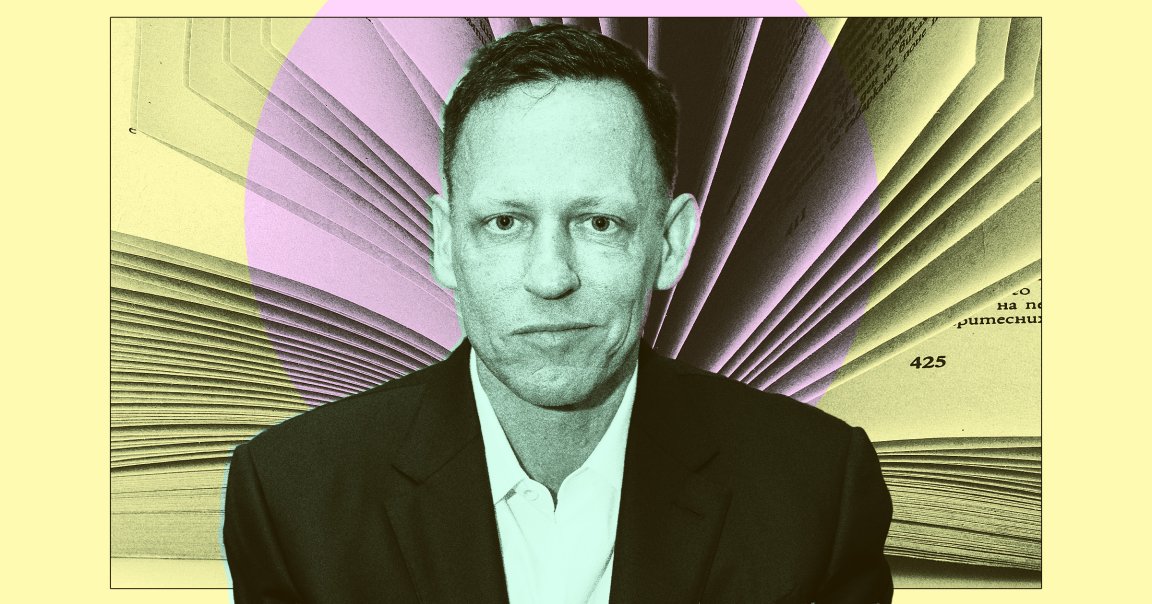
Ever since college dropouts Steve Jobs and Steve Wozniak began pedaling the romantic tale of founding Apple in Jobs’ parents’ Los Altos garage, college-age tech bros have longed to follow in their footsteps. But there’s just one tiny thorn: the “founder’s story” of late-night struggles and coffee-fueled breadboarding is mostly a capitalist fairy tale.
Still, it’s a mythos tech billionaire overlord Peter Thiel is all too eager to stoke. His empire is built on image — even the stereotypical “evil mastermind” vibe is a carefully groomed persona — which he disseminates across Silicon Valley hopefuls via the almighty Thiel Fellowship.
Each year, Thiel selects up to 20 “Thiel fellows” to each receive $200,000 and drop out of college in order to pursuit a tech startup. Though some come straight out of high school, many Thiel fellows historically come from Ivy league schools, which isn’t exactly the kind of background that screams “all or nothing.”
Thanks to Thiel’s massive profile and political influence, a number of Thiel fellows have watched their startups soar to billion dollar valuations. Though tech hopefuls are said to have just .01 percent of a chance to snag a Thiel Fellowship, that isn’t stopping scores of wannabe founders from dropping out of college anyway.
In a profile of the growing anti-college movement festering in Silicon Valley, Business Insider‘s Julia Hornstein sat down with a number of young dropouts to figure out just what the hell is going on.
Sebastian Tan, one of over 500 students who applied for an internship at Thiel’s surveillance and spying company Palantir, dreamed of being an entrepreneur. The billionaire’s book, “Zero to One,” is basically a tech monopolists’ manifesto, and “probably the best book I’ve read,” according to Tan, along with a laughable addendum that underscores exactly how undercooked his worldview is: “And I’ve only read a few pages.”
In April, Hornstein writes, Tan got the offer from Palantir, which he accepted, deferring his undergraduate degree until 2026. “In college, you don’t learn the building skills that you need for a startup,” he confidently declared.
Tan’s is an interesting story, especially for his early success — but he’s far from alone. In 2022, there were 2.1 million college dropouts in the US. According to a World Economic Forum survey in that same year, 28 percent of dropouts did so to start a business. That’s a lot of startups.
But while the country’s tech bros might be agog at the idea of dropping out, the reality is that very few startups succeed without advanced degree holders, let alone people who’ve completed undergraduate programs. Recent research found that 56 percent of startup executives hold a graduate degree, while the average age of a successful startup founder is 45.
The trouble here isn’t necessarily that it’s “college or nothing,” but rather the values, methods, and myths that startups engender — like that regulation stifles innovation, or that Silicon Valley startups exist separate of the massive economic inequality we see in the world today (on the contrary, startups have been key players in building that world.)
With the kind of failure rate startups engender, there’ll inevitably be a flood of unskilled, untrained labor trickling back into the economy — the kind of people who’ve been trained to think of themselves as “high agency individuals.”
That’s something Arbaaz Mahmood, a would-be physicist who skipped college to do a startup developing an “AI tool for car dealerships,” seems to at least acknowledge. “Honestly, nobody goes to college thinking they’re going to change the world,” he tells BI. “That’s a vacuous lie we tell VCs to get their money. Nobody builds startups to change the world. It’s just bullshit.”
When it comes to startups, Benjamin Shestakofsky, author of “Behind the Startup,” summarizes it well: “Our relationship with technology is socially constructed. Yes, we do make choices as individuals, but our choices are embedded in broader structures that create different sorts of opportunities and constraints for us.”
More on startups: Columbia Student Kicked Out for Creating AI to Cheat, Raises Millions to Turn It Into a Startup